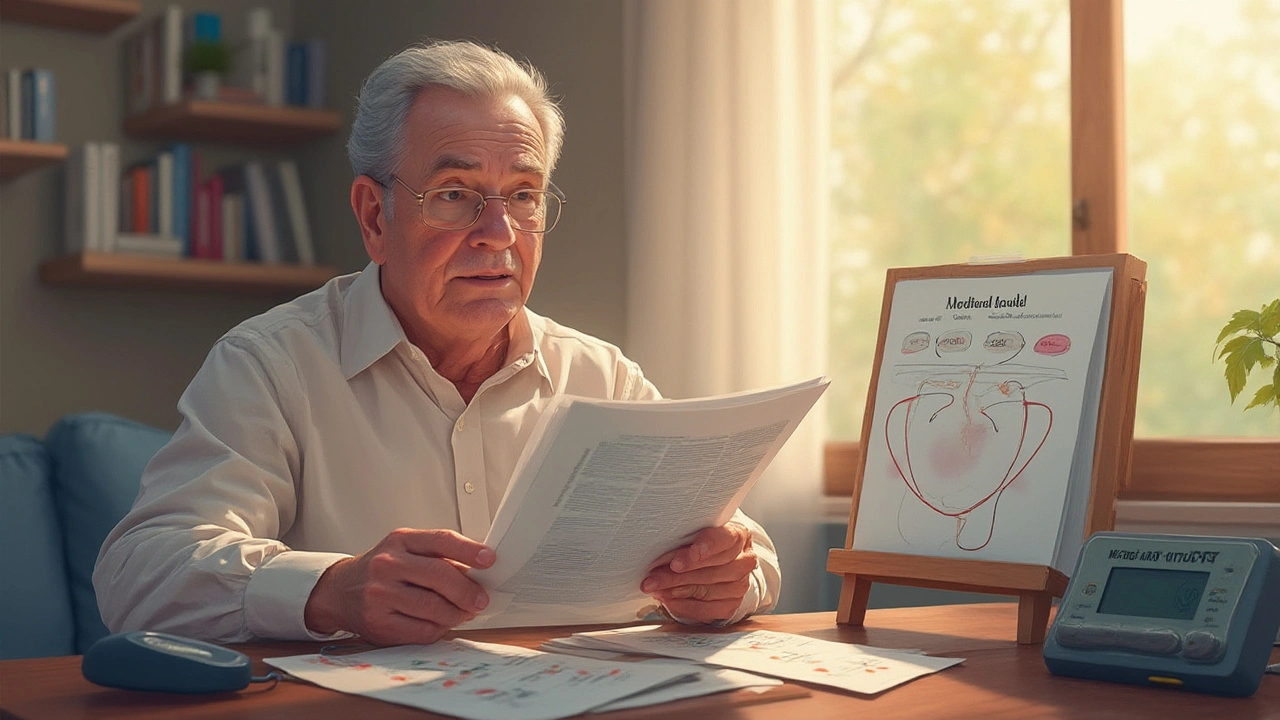Rebound Tachycardia – What It Is and How to Deal With It
Ever stopped a heart‑related drug and noticed your pulse racing? That’s rebound tachycardia. It’s a sudden jump in heart rate that shows up when you quit or lower a medication that was keeping your rhythm in check.
The body gets used to the drug’s effect. Pull the plug too fast and the heart over‑reacts. The result feels like a rapid heartbeat, shortness of breath, or even chest tightness. It can be scary, but knowing why it happens makes it easier to control.
What Triggers Rebound Tachycardia?
Beta‑blockers, calcium‑channel blockers, and some anti‑arrhythmic pills are the usual suspects. People often cut them out because they feel better, forget a dose, or switch doctors. Even caffeine or nicotine spikes can act like a mini‑withdrawal if you’re used to low heart rates.
Stressful events or dehydration can add fuel to the fire. The key is that the heart’s “brakes” are gone, so it speeds up to keep blood flowing. The faster rate isn’t always dangerous, but it can stress the heart and trigger other problems.
How to Spot the Signs
Typical signs include a pulse over 100 beats per minute, racing thoughts, light‑headedness, and a feeling of being “on edge.” Some folks notice palpitations – that fluttering or thumping sensation in the chest. If you feel dizzy, faint, or chest pain, get medical help right away.
Track your heart rate with a phone app or a simple wristwatch. Write down when the jump happens and what you ate, drank, or stopped taking that day. The pattern will help your doctor pinpoint the cause.
Managing and Preventing Rebound Tachycardia
Never stop a heart medication cold. Talk to your doctor about tapering the dose slowly. A gradual reduction gives the body time to adjust and keeps the heart from over‑reacting.
Stay hydrated and keep caffeine low. If you’re cutting a drug, ask about a short‑term bridge medication that can smooth the transition. Some doctors prescribe a low‑dose beta‑blocker for a few weeks while you wean off the main drug.
Exercise can help, but start easy. Walking or gentle cycling for 10‑15 minutes a day improves cardiovascular fitness without shocking the system. If you feel a rapid heartbeat during activity, pause, breathe deeply, and check your pulse.
Stress management matters. Deep breathing, meditation, or a quick walk can calm the nervous system and stop the heart from spiking. Even a few minutes of stretching can make a difference.
If you’re on multiple heart meds, ask your pharmacist to review them. Sometimes drug interactions cause a rebound effect you didn’t expect.
In rare cases, doctors may recommend a short course of a different medication to control the rebound, then switch back once the heart settles.
Bottom line: rebound tachycardia is a warning sign that your heart misses the support it’s used to. By tapering meds, staying hydrated, keeping stress low, and monitoring your pulse, you can avoid the uncomfortable racing feeling and keep your heart in a steady rhythm.

